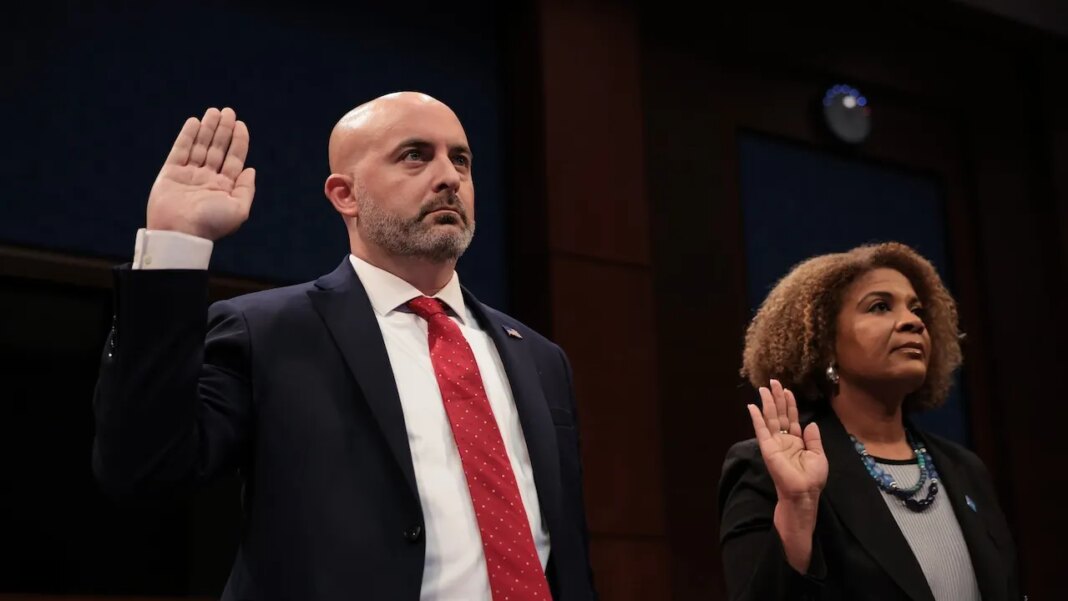USA Fencing: A New Era Under Scott Rodgers
A Leadership Change
USA Fencing has recently seen a significant leadership transition as former chair Damien Lehfeldt announced he would not seek re-election. This decision has sparked discussions and curiosity within the fencing community and beyond. In his place, the organization has appointed Scott Rodgers, a Paralympic medalist and former U.S. wheelchair fencing champion, as the new Board Chair. This historic election marks the first time an active parafencer will lead the board, emphasizing a commitment to inclusivity and athlete-centered governance. Rodgers will serve until the Board’s Annual Meeting in the fall of 2027.
A Controversial Tenure
Lehfeldt’s tenure was marred by significant controversy and challenges, which he cited as a key reason for his decision to step down. He faced intense scrutiny over issues related to transgender athletes in women’s sports, particularly following an incident involving fencer Stephanie Turner, who protested against competing against a transgender opponent. This protest gained national attention and led to a congressional hearing wherein Lehfeldt was subpoenaed. The backlash from this and other controversies resulted in lawsuits filed against him by former colleagues, including Olympic coach Andrey Geva, further complicating his role as chair.
An Athlete-Centered Approach
In contrast to Lehfeldt’s tumultuous chairmanship, Scott Rodgers’ election is seen as a move towards revitalizing USA Fencing’s athlete-centered policies. The Board’s statement highlighted a commitment to supporting fencing’s growth at every level. With Rodgers at the helm, the organization aims to foster an environment that not only prioritizes athlete safety but also welcomes diverse identities and backgrounds.
A Shift in Policy
Part of the context surrounding these leadership changes includes shifting policies on transgender participation in fencing. Following the controversies, USA Fencing amended its existing regulations to only permit female competitors in the women’s category. This adjustment aligns with measures put forth by the U.S. Olympic and Paralympic Committee and reflects ongoing debates surrounding inclusion in sports.
The Broader Context
Lehfeldt’s departure and Rodgers’ appointment occur at a critical juncture for USA Fencing, reflecting wider societal discussions about gender, inclusion, and competitive fairness. Turner’s viral protest highlighted a complex intersection of athletes’ rights and the ongoing dialogue about how sporting organizations handle these sensitive issues. The response from USA Fencing indicates a willingness to adapt to changing societal norms while trying to maintain the integrity of competition.
Engaged Community Responses
Turner has indicated intentions to lobby for further changes within USA Fencing, emphasizing the need for accountability among leadership. Her assertion that the organization must do better in addressing concerns raised by female athletes resonates with many in the fencing community and beyond. Questions of fairness in competition continue to provoke passionate discussions, illustrating the complexity of modern sports governance.
Conclusion: A Path Forward
As USA Fencing navigates these changes amidst ongoing scrutiny, the future direction under Scott Rodgers may unfold new avenues for the sport. The organization’s commitment to uphold values of inclusion while ensuring competitive fairness will undoubtedly be tested in the coming years. The spotlight remains on how USA Fencing and its leadership will balance these often conflicting needs of its diverse athlete base.



